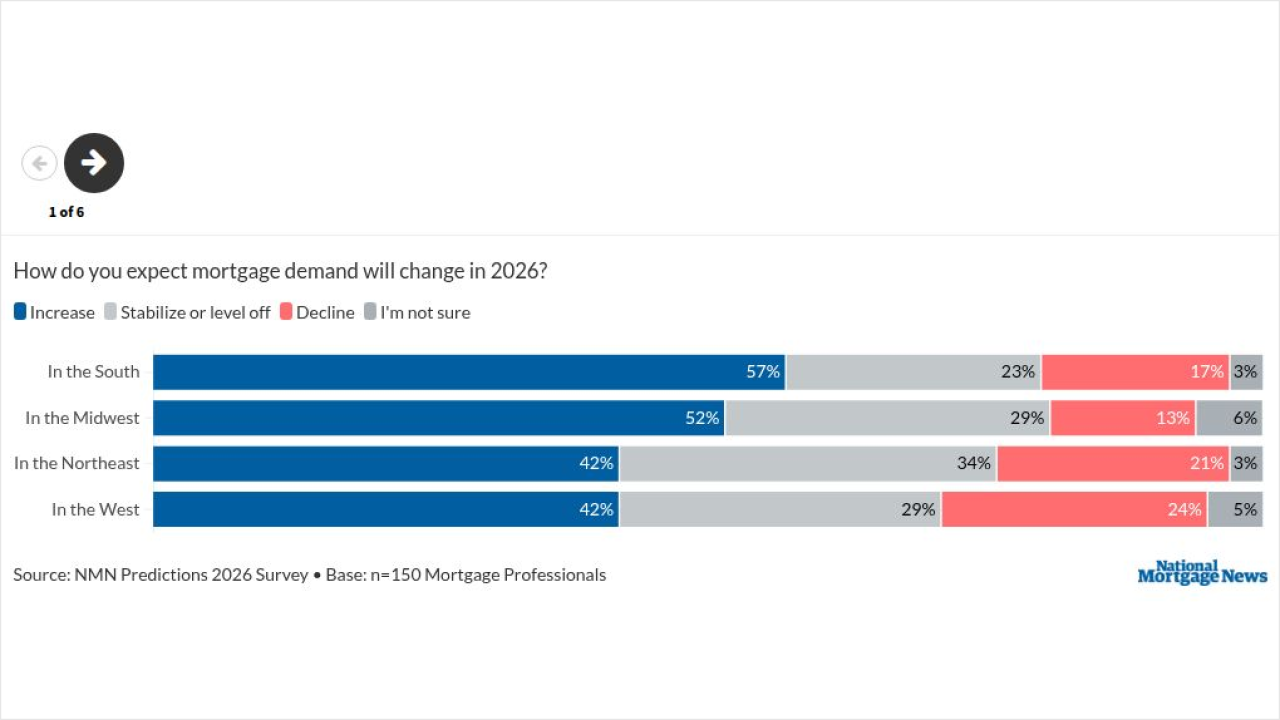
The Consumer Financial Protection Bureau said that higher interest rates have wreaked havoc on the mortgage market, causing monthly payments to skyrocket for new homebuyers while lenders denied more applicants from getting home loans due to insufficient income.
In a report Wednesday, the CFPB said that homebuyers paid more in costs and fees to take out a mortgage largely because more than half of all new borrowers are paying upfront fees, or discount points, to lower their mortgage rate. The report was based on 2022 data and does not reflect the even higher mortgage rates that are prevalent today.
The CFPB is keeping a close eye on cash-out refinances, which plummeted last year to 2.2 million, a 73% drop from a year earlier. The CFPB said it is reexamining whether to change mortgage servicing standards largely because cash-out refinances can increase the risk of foreclosure.
"The CFPB will be devoting more attention to ensure that borrowers can sufficiently navigate alternatives to foreclosure when faced with financial distress," CFPB Director Rohit Chopra said in
With mortgage rates headed toward 8% and the Federal Reserve showing no signs of reducing interest rates in its fight against inflation, trends in the mortgage market show no signs of changing and are more likely to worsen as rates rise.
Last year, borrowers paid an average of $2,045 for a conventional conforming 30-year fixed-rate mortgage, a 46% jump from $1,400 in 2021. The increase was driven almost entirely by the rise in mortgage rates, the CFPB said in its
The bureau also found a very large increase in costs and fees paid by borrowers when taking out a mortgage because more homebuyers are paying down their mortgage rate. Slightly more than 50% of borrowers paid a median of $2,370 in discount points last year, the highest percentage since the bureau began collecting data on points and fees.
In addition, the CFPB found that even though refinancing activity plummeted, a larger share of refinances in 2022 went to Black and Hispanic borrowers, borrowers of low- or moderate-income and those taking out loans secured with properties in low- or moderate-income neighborhoods. Refinancing allows a borrower to tap the equity in their home. Homeowners may be finding it difficult to move and are using the proceeds from cash-out refinances for renovations and repairs, the CFPB said.
Home equity lines of credit were the only form of refinancing to increase from 2021. Though independent mortgage lenders dominate the cash-out refinancing market, banks offered the majority of the 1.27 million home-equity lines of credit last year. HELOCs tend to have lower interest rates, monthly payments and foreclosure risks than cash-out refinances, the CFPB said.
Overall the bureau also found that Black and Hispanic borrowers fare worse when it comes to loan approvals, loan sizes and fees though some disparities shrank or even disappeared for loans backed by the Federal Housing Administration.
Black and Hispanic borrowers were denied loans at higher rates due to higher average debt-to-income ratios, the report found. They typically received smaller loans, were charged higher interest rates and paid more in upfront fees than white and Asian borrowers. The median interest rate last year for Black and Hispanic borrowers was above 5%, while the median rate was below 5% for white and Asian borrowers, the CFPB said.





